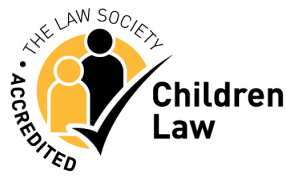[lead]Personal Injury Trusts – What are they and how can they help if you have had a successful compensation claim?[/lead]
There are many challenges to face if you have been seriously injured in an accident. Just dealing with your injuries and the rehabilitation required to get your life back on track can be difficult enough. If you take legal action to recover compensation, it can result in unexpected challenges. If your claim is successful, a sudden and potentially large influx of money can have several consequences, particularly involving means-tested benefits. Personal Injury Trusts are one way to solve some of these problems.
What is a Personal Injury Trust?
If you have been injured in an accident and awarded compensation, it is possible for the compensation, and any future compensation to be held in Trust. A Personal Injury Trust is a document that sets out the basis on which the compensation is to be managed for the duration of the Trust. The Trust normally lasts for your lifetime. There are many different types of Trust that can be put in place depending on your requirements. Often, people choose to put in place a Trust that allows them the most control. It is important to most people that they have the ability to bring the Trust to an end at any point and to have the power to remove and appoint different Trustees.
We can work with you to put in place a document that meets your specific needs and where you feel in control. If you would prefer to have a document that places greater control in the hands of your Trustees, we can assist you with putting a document in place that reflects those wishes.
Who can I appoint as Trustees?
It is necessary to appoint two Trustees to look after the compensation for you. The Trustees must be over 18 and be trustworthy. It is possible for you to be appointed as Trustee alongside a trusted friend/family member or a professional such as a Solicitor. It is worth noting that if you are in receipt of benefits, we recommend you have at least 2 independent Trustees. If you were appointed alongside someone else as Trustee and that person was unable to act, the monies held in the Trust could be assessed as part of your assets for the duration of time you were the sole Trustee. This means you may lose entitlement to the means tested benefits.
Often due to the level of responsibility on Trustees to ensure the proper management of the monies held in Trust, many people prefer to appoint a professional Trustee, such as a Solicitor. It can be helpful to have an independent professional where there are likely to be family disputes as a result of the compensation you have received or if you would prefer someone independent to look after the Trust for you.
Are there any time limits?
It is possible to put a Personal Injury Trust in place at any point. If you are in receipt of benefits, you must be careful, because if the compensation is retained beyond 52 weeks of you receiving it, you may lose entitlement to certain means tested benefits. It is better for the compensation to be kept separate from your other cash assets, so it can be easily identified as compensation. You are still entitled to receive certain types of benefits if the compensation is held in a Personal Injury Trust.
What are the benefits of putting a Trust in place?
There are many benefits to putting a Trust in place:-
- Ring-fencing the compensation from family members and yourself. If you feel that managing such a large sum would be challenging, then it can be helpful to have independent Trustees appointed to act in your best interests and to help reach decisions with you.
- Protecting your compensation from divorce proceedings. If the monies are separate from your own assets, then the compensation is unlikely to be taken into account in any divorce proceedings rather than if you had simply received the monies into your own personal bank account.
- Continuing to receive certain means tested benefits. It is not classed as a deprivation of assets to have a Personal Injury Trust in place and still receive certain means tested benefits. The compensation is able to be applied towards anything you would like such as the purchase of a property.
If you would like to discuss putting in place a Trust that best suits your needs, do not hesitate to contact one of our Solicitors on 01244 312306.













